Highlights from the United Nations Moldova Results 2020 Report
2020 was the seventy-fifth anniversary of the United Nations, and as was the case for many countries around the world, the COVID-19 pandemic meant that this was a challenging year for Moldova, both economically and socially. However with the support of the United Nations, Moldova was not discouraged, and became actively involved in preparedness planning. In addition, progress was made on the United Nations–Republic of Moldova Partnership Framework for Sustainable Development (PFSD) 2018–2022.
You can read the full UN Moldova 2020 Country Results Report here.
Partnership Framework for Sustainable Development 2018 – 2022 (PFSD)
The PFSD is a strategic planning document concerning the national development priorities and goals to be implemented in partnership with the Government of the Republic of Moldova. Institutions which contribute to supporting the implementation of these goals include both national and local Government institutions, civil society organizations and private sector companies. The aim of the PFSD is to support Moldova in achieving the Sustainable Development Goals (SDGs), as outlined in the 2030 Agenda for Sustainable Development.
2030 Agenda for Sustainable Development.
The aim of the Agenda is to eliminate all forms of poverty, combat inequalities and tackle environmental and climate change. Moldova is committed to achieving these goals by 2030 with the aid of the United Nations and its many partnerships. However to achieve these goals, they are faced with a number of challenges, such as demographic decline, inequality, a vulnerable health system and insufficient financing.
United Nations Country Team (UNCT)
The United Nations Country Team (UNCT) is a group of 24 representatives from United Nations entities and specialized agencies, such as the World Bank, the World Health Organization and the United Nations Office for Disaster Risk Reduction, who are working in Moldova to support the country in the achievement of its national development priorities from the 2030 Agenda for Sustainable Development. The guidance for the UNCT comes from the Partnership Framework for Sustainable Development 2018 – 2022 (PFSD).
Sustainable Development Goals (SDGs)
The four priority areas for development in the PFSD have been identified as:
- Governance, human rights and gender equality
- Sustainable, inclusive and equitable economic growth
- Environmental sustainability and resilience
- Inclusive and equitable social development
Within these priority areas, 17 separate Sustainable Development Goals (SDGs) have been established as key areas to focus on. Integrated into all four of the priority areas are the fundamental principles of leaving no one behind, human rights, gender equality and women’s empowerment, sustainability and resilience, and accountability, with a special emphasis placed on supporting and lifting up the most vulnerable and disadvantaged groups.
Funds distribution
The United Nations in Moldova secured over $27 million in resources for the implementation of its joint work-plans for 2020, out of which 73.4% were implemented, with the remainder being rolled over to 2021.
The funds were directed towards programs and projects that range across all SDGs, with the largest share of expenditure being directed towards SDGs 16 (Peace, Justice and Strong Institutions), 9 (Industry, Innovation and Infrastructure), 5 (Gender Equality), 8 (Decent Work and Economic Growth) and 3 (Good Health and Well-being), which received over 80 per cent of the funding.
The main findings from each priority area will be discussed below.
Priority area 1: Governance, human rights and gender equality
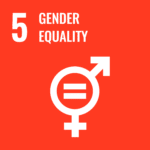
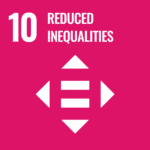
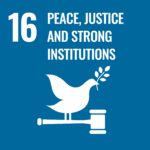
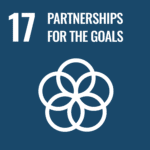
Strengthening data capacities for SDGs
This has been a key area of progress, by establishing a statistical population register and collecting and analyzing data in specific fields, leading to a comprehensive demographic survey.
Gender equality
The National Human Rights Council met to review the recommendations from the Committee on the Elimination of Discrimination against Women (CEDAW). This resulted in an online platform where the general public are now able to report gender-based discrimination, gender-based violence, sexist speech and violence against women in elections.
Children’s rights
There has been great progress made in the promotion of children’s rights and both an improved legal framework and a system of protection and response to gender-based violence are now in place following a revision by Parliament and the Government.
Law enforcement
The issues of cross-border crime and migrants’ rights were addressed, with a view to aiding victims of trafficking.
Strengthening the electoral processes
A national campaign was launched aimed at educating young people about elections and corruption prevention.
Priority area 2: Sustainable, inclusive and equitable economic growth
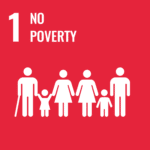
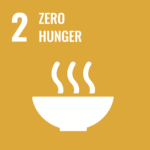
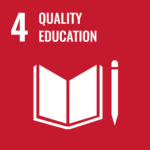

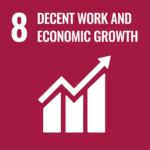
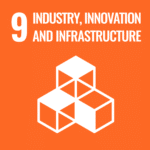

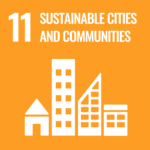
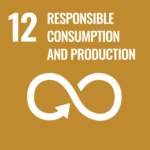

Employment opportunities
Several policies were improved and revised in order to increase labor-force participation, foster better employment opportunities and equal pay for women, and promote alternative childcare services. Furthermore, laws were amended to improve the protection of working migrants, and a program developed for the reintegration of returning migrants.
Changing attitudes regarding gender inequality
Over 370 women and girls improved their knowledge of gender equality and women’s empowerment, aiming to increase the knowledge of women and girls about their rights in the workplace.
Economic recovery
Two national action plans were put in place to aid the recovery of small enterprises, including female-owned enterprises, as part of the economic recovery in the aftermath of the COVID-19 pandemic.
Access to resources for vulnerable and disadvantaged groups
Efforts were made by the United Nations to improve the knowledge and skills of disadvantaged groups, and to help vulnerable groups become more aware of their human rights, as well as promoting the transition from school to gainful employment, ensuring students are better prepared for entering the labor-market.
Food waste management
An analysis of food losses and waste in the country was conducted, resulting in a law being drafted on the prevention of food waste.
Priority area 3: Environmental sustainability and resilience

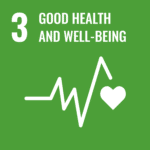


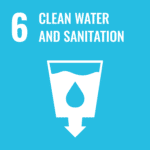
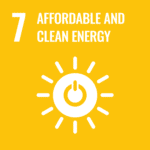



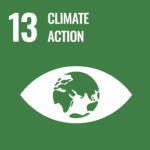
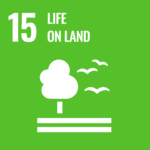

Climate change challenges
In 2020 a severe drought in Moldova brought to the forefront the need to better prepare people to cope with the challenges associated with climate change. The United Nations helped several districts strengthen their climate resilience capacities, with five communities drafting and adopting local climate change and disaster risk reduction plans.
Promotion of land degradation neutrality
Several events were organized to raise awareness among farmers of climate-smart agricultural practices and land degradation prevention, as well as efforts to promote sustainable forest management.
Water resource and radioactive waste management
Plans for radioactive waste management and storage were discussed, such as identifying options for the final disposal of radioactive waste, along with ideas to promote water resource management.
Priority area 4: Inclusive and equitable social development







Health system
Due to the ongoing effects of the COVID-19 pandemic, the majority of the United Nations support under this priority area focused on strengthening the capacity of the health and education systems, in particular the development of national programs to fight tuberculosis, malaria and AIDS. Improvements were also made to the accessibility and quality of sexual and reproductive health services, HIV-related services and cervical cancer prevention services, as well as radiotherapy services. Dietary guidelines were developed for preschools and schools to help overcome nutritional issues in children and adolescents, and the United Nations continued to raise awareness for vulnerable and disadvantaged groups regarding their rights and access to social services.
Education system
A mentoring program was implemented to help women and girls in situations of risk, especially with regards to those living with HIV. Inclusive education was a focus of this priority area, with particular emphasis on children with disabilities and Roma children, as well as promoting access to quality health education; nearly 30,000 students benefited from health education courses during 2020.
Addressing poverty and violence
A further focus was addressing poverty through effective social assistance, such as an increased coverage of vulnerable households with children, and there was a push to strengthen support services for gender-based violence and child abuse, following their increase during the enforced lockdowns.
SDG Progress
The Voluntary National Review (VNR) for Moldova revealed that the country registered significant progress in achieving SDGs 1, 8, 13 and 17, while underlining the moderate results obtained in achieving SDGs 2, 3, 5, 7, 9 and 11. However, the review also revealed that progress in achieving SDGs 4, 6, 10, 12, 15 and 16 was less noticeable. Hence, these areas will require increased attention in the future. The progress of the SDGs is summarized below:
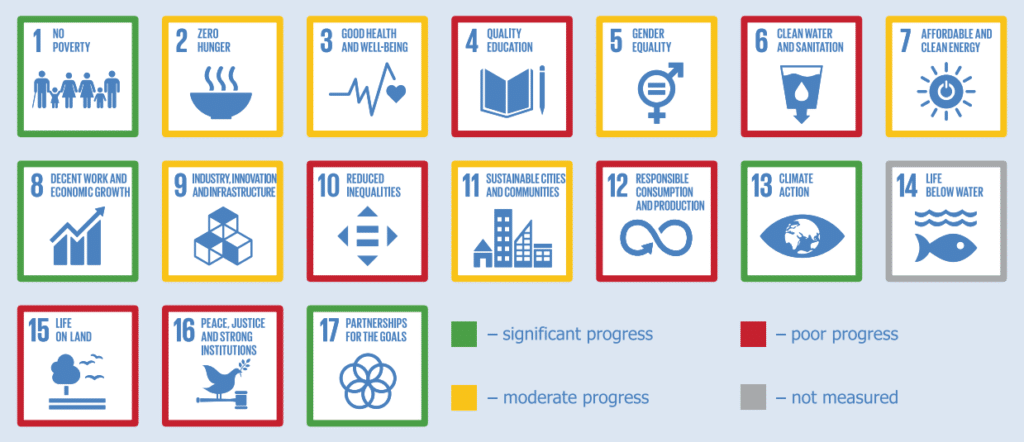
Conclusion
It goes without saying that the work of the United Nations in Moldova would not be possible without the support and contributions of its many different partners. The United Nations in Moldova had many existing partnerships which were strengthened during the pandemic in 2020, and has since forged new ones both to deal with the threats of the COVID-19 pandemic and to aid the progress towards the achievement of the Sustainable Development Goals (SDGs). For example, an important partnership which has been strengthened is between the United Nations and the National Bureau of Statistics (NBS), with regards to providing reliable data for SDGs, and for data collection in response to the COVID-19 pandemic. Ongoing partnerships, collaboration and support are the backbone of any successful endeavor, as highlighted by the United Nations Moldova Results 2020 Report.
Simon Springett, the United Nations Resident Coordinator in the Republic of Moldova celebrates the achievements of 2020 by praising the teamwork of the United Nations in focusing on advancing the well-being of all people in Moldova, supporting the revision of the National Development Strategy ‘Moldova 2030’, and developing the first Voluntary National Review (VNR) for Moldova, which was presented at the United Nations High-Level Political Forum in July 2020.
